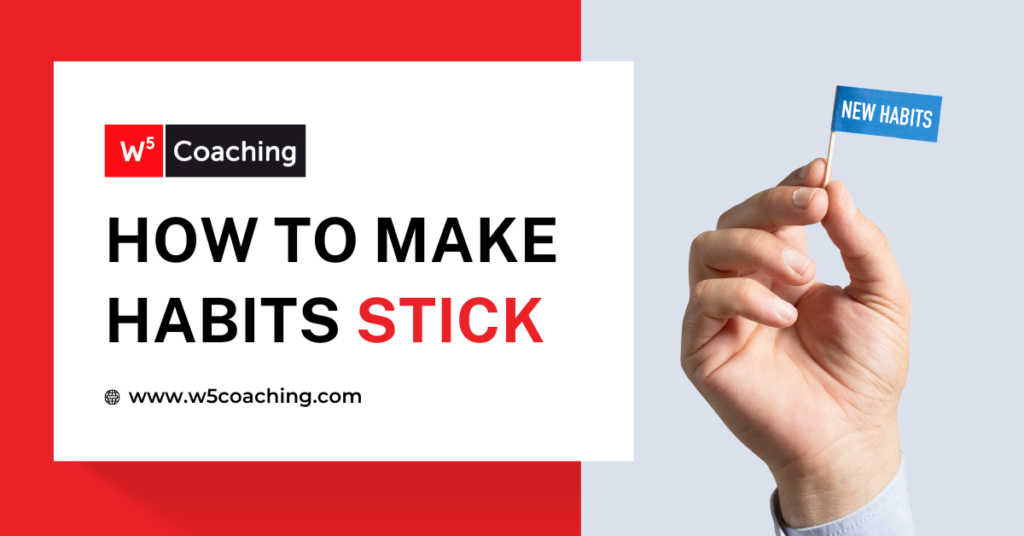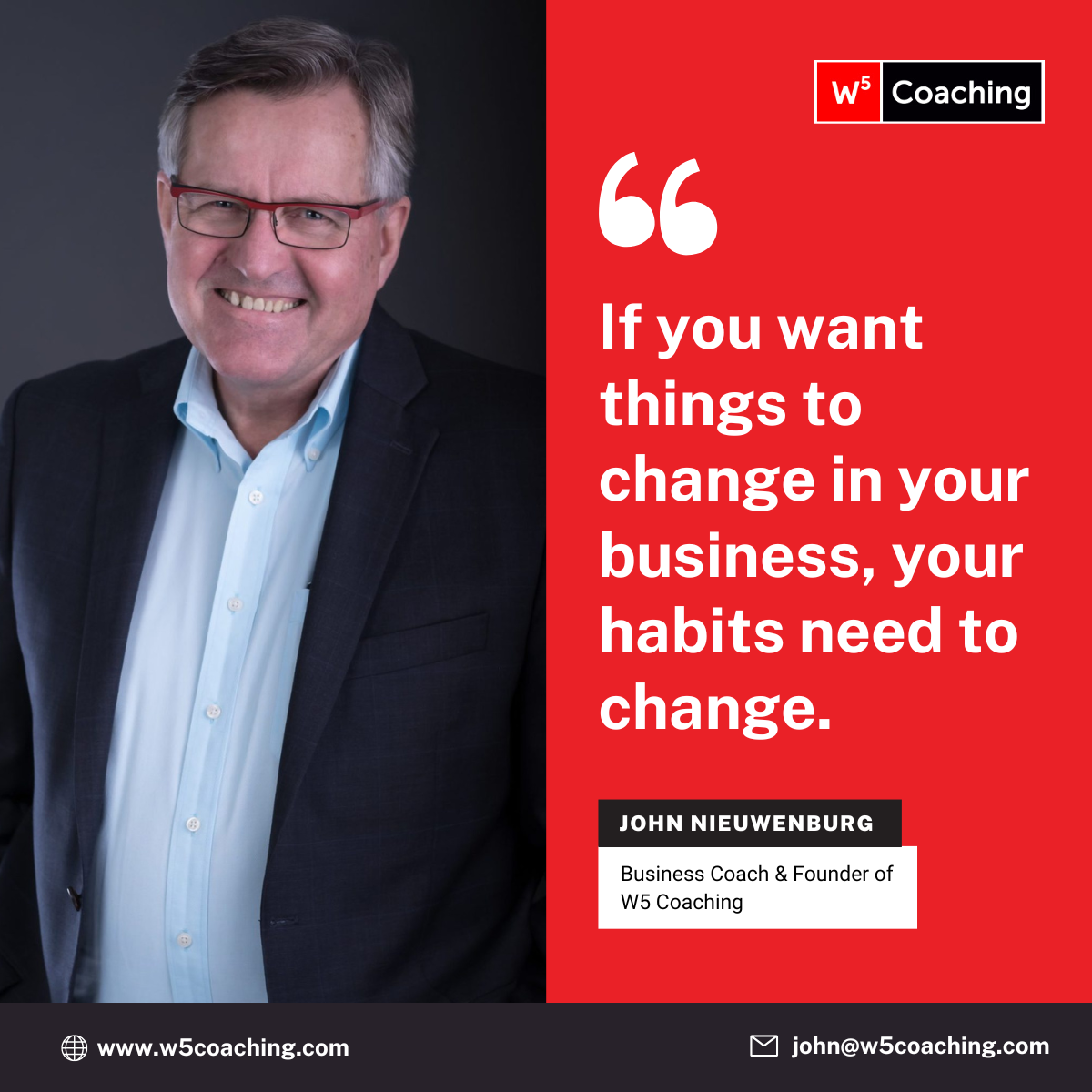3 Tips to Make Habits Stick

“You do not rise to the level of your goals, you fall to the level of your systems.”
~ James Clear
If you have goals and desired outcomes, the system to achieve them is the collection of daily habits that will get you there.
Many people find it challenging to make new habits stick.
Here are 3 things that will make it easier.
1. Think Small
Habits don’t have to be huge to make a big difference.
As James Clear writes in his book Atomic Habits (highly recommended) – small habits matter because they compound.
If you were to get 1% better each day, over the course of a year, it would compound to 38%
Each day, another grain of sand gets dropped and you’re not even thinking about it.
But it adds up.
(The opposite effect is also true: if you were to lose 1% each day, you’d get to almost nothing by the end of a year.)
2. Use a Habit Tracker
When creating new habits, many of us fall off course simply because we forget the new habit.
This is preventable if you use a habit tracker.
A habit tracking system doesn’t need to be complicated!
Here is a photo of the tracker that James Clear puts out.
![]()
At the top is a list of months and days of the week.
In the left-hand column is the list of habits you would like to track.
Each day you perform the habit, you mark it with an X.
This keeps your habits top of mind and provides a progress report at the same time.
It also becomes evident if you miss a day!
That’s OK. It’s a very human thing to do – especially when creating new habits.
Just make sure you don’t compound the mistake by missing a second day!
Because once you’ve missed twice in a row, it’s really easy to miss for the third time, and then to lose the habit completely.
3. Make your new habit easier to DO than NOT do
Shawn Achor gives a great example in his book The Happiness Advantage.
He wanted to learn to play guitar. So, he put the guitar in his living room within easy reach.
But what he found was that the easier thing to do when he went into the living room was to pick up the remote to watch TV.
6 months went by. He still didn’t have a habit of practicing guitar.
So he took the batteries out of his remote and put them in another part of the house that was a 20-second walk away.
This small change made all the difference.
Because it was now easier to pick up the guitar than it was to go get the batteries for the remote, he began practicing daily.
About 50% of everything you do is by habit
 What that means is about half of the results you get are a product of those habits.
What that means is about half of the results you get are a product of those habits.
In short, if you want things to change in your business, then your habits have to change.
You can make your new habits stick by:
- Thinking small and developing atomic habits that compound over time
- Tracking your progress and keeping your habits top of mind with a habit tracker
- Making your habits easier to DO than NOT do by removing any friction that’s getting in the way
Small businesses are the perfect place for the effects of habit to multiply.
If you’d like to really accelerate your progress, consider making it a habit to meet with a business coach. 😉
Want to explore whether coaching is right for you? Book 15 minutes on my calendar here: book a call with John

Build a Self-Managing Company
How to build a business that runs smoothly, profitably, and (mostly) without you.
Feeling stressed out and overwhelmed with a business that is taking all your time - and not giving you enough in return?
Are you finding it challenging to hire the right team (and get them to do the right things)?
I wrote this little guide for you!
Enter your details below to receive your free copy!
